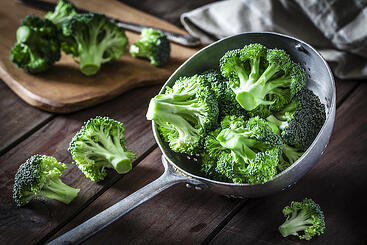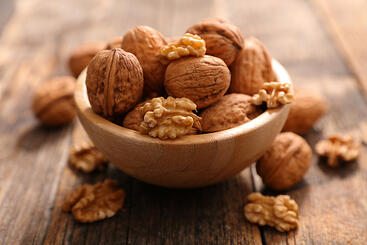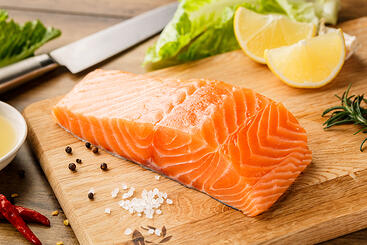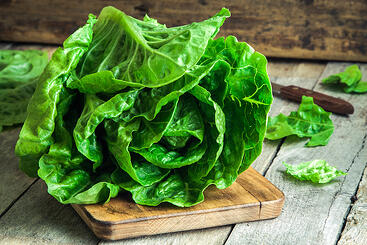There are times in the day when we seem to forget almost everything. This strange sensation is often renewed on the occasion of important events.
For example, when you study for a university exam, despite weeks of study and concentration, you arrive at the fateful date with the certainty of not remembering anything. It also happens at work or in the family: managing children, shopping, a thousand things to do.
There are commitments that require priority, others that need more attention, especially during business hours. Many factors could depend on our memory and concentration, let’s think of those who carry out professions where the attention threshold is essential.
memory is one of the most fascinating aspects of brain functioning, it is a vital cognitive function that tends to weaken over time.
However, scientific research agrees that senile diseases can be prevented with a more moderate lifestyle, a lifestyle in which the right diet plays a decisive role.
But are there any foods that more than others allow us to increase our ability to remember in the short term? Foods or drinks that improve the level of attention and concentration?
And what should we add to our diet to preserve this fundamental primary function of our brain? Here is a list of foods that are good for your memory.
Avocado
It is a fruit that contains monounsaturated fats that improve our cognitive efficiency. In addition to the aforementioned fat, it contains folic acid and vitamin K important for concentration (source). Avocado is an anomalous fruit which can be considered as a meal replacement. But without exaggerating.
Broccoli
This vegetable is considered a true superstar of wellness, belonging to the cruciferous family (or brassicaceae ), and as such it should never be missing in your diet along with radishes, cauliflower, watercress and turnip greens.

Broccoli contains choline (an essential nutrient similar in importance to B vitamins) and the usual vitamin K. Eating broccoli often could lead to better prevention of neurodegenerative senile diseases, such as Alzheimer’s disease. The same goes for Brussels sprouts.
Whole grains
It is worth mentioning that I prefer to consume whole grains over refined ones.
In addition to being a primary source of energy, useful for maintaining vital functions, whole grains release glucose into the blood more slowly, favoring cognitive functions and avoiding creating damage that can lead to the onset of metabolic diseases. / p>
Bitter dark chocolate
Rich in flavonoids, extra dark chocolate contains cocoa, which has well-known antioxidant effects such as those produced by coffee or berries. With a high concentration of cocoa it preserves memory and slows down the effects of aging, even impacting in cases of sleep deprivation (source). It should be part of an anti-aging diet.
Blueberry
Rich in fiber, antioxidants, vitamin C and vitamin K, blueberry is a berry that can be eaten regularly because it improves concentration and short-term memory (source). It also has positive effects on the cardiovascular system (source). In fact, I recommend it especially for breakfast, to start the day well.
Nuts
Walnut is a seed (generically called “dried fruit”) rich in fatty acids, vitamins and minerals. In particular, the presence of vitamin E is sufficient to decrease, in the long term, the incidence of neurodegenerative diseases (source).

Being a caloric food, it should be calculated in the general caloric intake of meals, but it is certainly better to eat a few nuts than a packaged snack packed with salt and preservatives.
Extra virgin olive oil
EVO oil is rich in polyphenols that slow down aging, improve learning and memory and counteract the onset of diseases such as Alzheimer’s. Better if eaten raw to dress first and second courses.
Tomatoes
This vegetable belonging to the Solanaceae family has had enormous success in our country, so much so that it is consumed far and wide, raw and cooked, both as a side dish and as a condiment.
And there is a reason: its anti-inflammatory ability, which counteracts the action of free radicals, helps general well-being. It is rich in lycopene which improves memory in the short and medium term (source).
Salmon
Being a fish rich in Omega-3, salmon, in addition to being tasty, allows our brain to work better, refining the memory and pulling away the sense of fogging, helping to make our mind more agile and brilliant. Omega-3 fatty acids are important for the entire central nervous system (source).

Cedano
This vegetable belonging to the apiaceae family, therefore a close relative of carrots, parsley and fennel, is used in cooking for its fresh and light flavor.
Low in calories, but rich in potassium, vitamin A, it has a high diuretic power, counteracts bad cholesterol and fights inflammation. The presence of polysaccharides improves memory in adults and children.
Pumpkin seeds
Any food rich in zinc is intended to improve our cognitive functions and pumpkin seeds (often eaten roasted and salted) do not escape this rule (source).
It would be better to consume them unsalted to avoid the contraindications associated with excessive salt consumption. You can use them as an additional dressing to enrich salads, just a handful a day is enough to appreciate the benefits that also extend to other areas.
Eggs
As you know I’m a big sponsor of egg consumption, often victimized for no reason. In fact, the chicken egg is a food rich in vitamins and minerals that brings benefits in all directions (source). Balance in consumption is the rule, but don’t be afraid to eat more than three to four a week, as you sometimes read.
If you do physical activity, then, they become a valid ally rich in good quality proteins. From the point of view of memory, eggs (especially the yolk ) contain choline and promote the release of good mood hormones, at the basis of fundamental psychological well-being to make the most of it.
Leafy vegetables
Vegetables such as lettuce, watercress, radicchio, endive, chard, spinach and rocket are good for our body. They satiate and do not have a high calorie intake, being rich in water. Therefore ideal for complete meals in the hot season, but also as a side dish during the autumn and winter months, to lighten particularly caloric second and first courses.

They promote digestion and on a cognitive level they delay aging and the onset of senile diseases (dementia). Rich in vitamin K and vitamin A, they counteract the inflammations often at the root of complications that undermine our general well-being.
Also noteworthy are drinks such as coffee or tea and spices such as turmeric.
If for some reason you are unable to observe a diet rich in essential nutrients that help memory, you can resort to food supplementation, which should always be considered as a support. A multivitamin can help balance any basic deficiencies. However, try to follow a correct diet by helping yourself with constant physical exercise. A sedentary lifestyle is not good for your brain.
Did you know that nutrition is not only essential for health but is also the basis of your performance? It sounds incredible but you can literally improve yourself simply by eating better , in order to achieve all the goals you want.
You want to know what you need to do to improve your nutrition and start living life that do you want in terms of health and psycho-physical performance?
Start by watching the free video lesson THE TIMING OF NUTRITION which gives you information of primary importance on nutrition and its effects.



